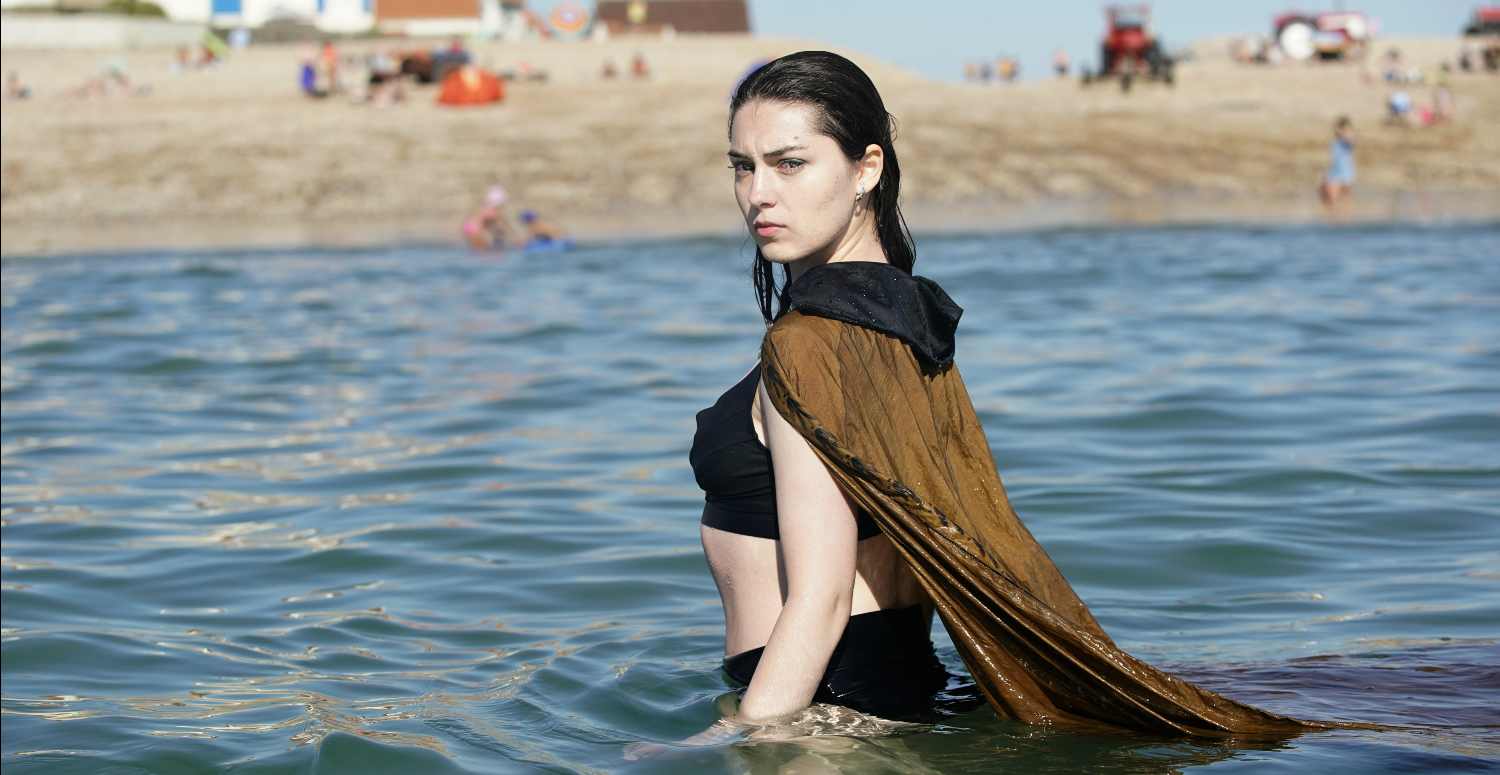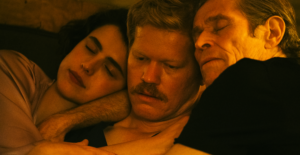L’Empire
(The Empire)
Prix du Jury – Berlin
2024

FR EN
Contrefaçon pour les “puristes”, innovation pour les “néophytes”, « L’Empire » est décidément un film à part et qui suscite la controverse. Réalisé par Bruno Dumont et co-produit par de nombreux studios européens, ce long-métrage singulier entremêle les genres de manière assez déroutante : science-fiction, apocalypse, drame, parodie, comédie, absurde, voire documentaire, tout cela dans une seule et unique trame !
Le synopsis : sur la Côte d’Opale grandit un enfant que beaucoup d’êtres craignent. Il s’agit du Margat, représentant des Zéros qui, lorsqu’il arrivera à maturité, utilisera ses pouvoirs pour faire régner le mal sur Terre. Son père, Jony (Brandon Vlieghe), au service de Belzébuth (Fabrice Luchini) et accompagné notamment de Line (Lyna Khoudri), tentera de protéger sa progéniture contre le bien des Uns gouvernés par la Reine (Camille Cottin) et représentés par ses sbires Jane (Anamaria Vartolomei) et Rudy (Julien Manier).
Complètement décalé, « L’Empire » reprend le manichéisme Bien/Mal (ici Un/Zéro) propre à certaines franchises de science-fiction, mais d’une façon volontairement grotesque. Le film présente des contrastes saisissants qui font osciller l’intrigue entre du sérieux et de l’auto-dérision, ne serait-ce que dans le jeu même des actrices et acteurs – certain·es professionnel·les, d’autres débutant·es. Sans perdre son fil directeur, l’intrigue alterne ainsi volontiers entre des scènes allant de l’épique au burlesque et du fantastique au naturaliste. Les énormes différences de son et de cadrage (du très gros plan au plan très large et paysager) elles aussi nous brouillent tout en restant cohérentes avec leurs registres. Enfin, l’hyper-réalisme social de ce coin du Nord de la France et de ses habitants détonne face aux ultra-modernes et magnifiques vaisseaux-cathédrales verticaux et vaisseaux-châteaux horizontaux – inspirés de véritables bâtiments historiques et générés par des effets spéciaux réussis.
Au demeurant, le film a bel et bien un fond. Les Uns et les Zéros se battent pour contrôler des êtres humains « attachants et cocasses » pour la Reine, naturellement « nuls » (et donc mauvais) pour Belzébuth mais sans lesquels le monde serait un « néant ». Loin d’être émotionnellement chargé, « L’Empire » propose de fait la vision étonnamment détachée et désabusée d’une humanité constamment tiraillée entre le bonheur et la souffrance, entre la retenue et la pulsion, à l’instar de la relation ambivalente entre Jane et Jony. Or les antagonismes s’attirent et se fondent dans un trou noir qui parfois nous menace, d’autres fois nous effleure à peine, le tout dans un univers certes insensé, mais qui a le mérite d’exister.
Counterfeit for the « purists », innovation for the » newcomers », “The Empire” is definitely a film of its own, and a controversial one as well. Directed by Bruno Dumont and co-produced by several European studios, this singular feature interweaves genres in a rather confusing way: science fiction, apocalypse, drama, parody, comedy, absurdity, even documentary, all in a single storyline!
The plot: on the French coast a child whom many fear is growing up. He is the Margat, representative of the Zeros who, when he reaches maturity, will use his powers to bring evil to Earth. His father, Jony (Brandon Vlieghe), working for Beelzebub (Fabrice Luchini) and accompanied by Line (Lyna Khoudri), will try to protect his offspring against the good of the Uns [Ones], ruled by the Queen (Camille Cottin) and represented by her henchmen Jane (Anamaria Vartolomei) and Rudy (Julien Manier).
Completely offbeat, “The Empire” takes up the Good/Evil (in this case, Ones/Zeros) Manichaeism typical of some science-fiction franchises, but in a deliberately grotesque way. The film features striking contrasts that move the plot back and forth between seriousness and self-mockery, right down to the performance of the actors – some professionals, others first-timers. Without losing its guiding thread, the plot alternates between epic and burlesque, fantasy and naturalism. The huge differences in sound and framing (from very close-ups to very wide, landscape shots) also confuse us, while remaining consistent with their registers. Finally, the social hyper-realism of this corner of Northern France and its inhabitants stands out against the ultra-modern and breathtaking vertical cathedral-ships and horizontal castle-ships – inspired by real historical buildings and generated by brilliant special effects.
And yet, the film actually has substance. The Ones and the Zeros fight to control human beings who are « endearing and funny » to the Queen, and naturally « lousy » (and therefore evil) to Beelzebub, but without whom the world would be « nothing ». Far from being emotionally intense, “The Empire” offers a surprisingly detached and disillusioned vision of humanity constantly torn between happiness and suffering, restraint and impulse, as in the ambivalent relationship between Jane and Jony. Yet antagonisms attract and merge in a black hole that sometimes threatens us, other times barely touches us, all within a universe that may not make sense, but does deserve to exist.

